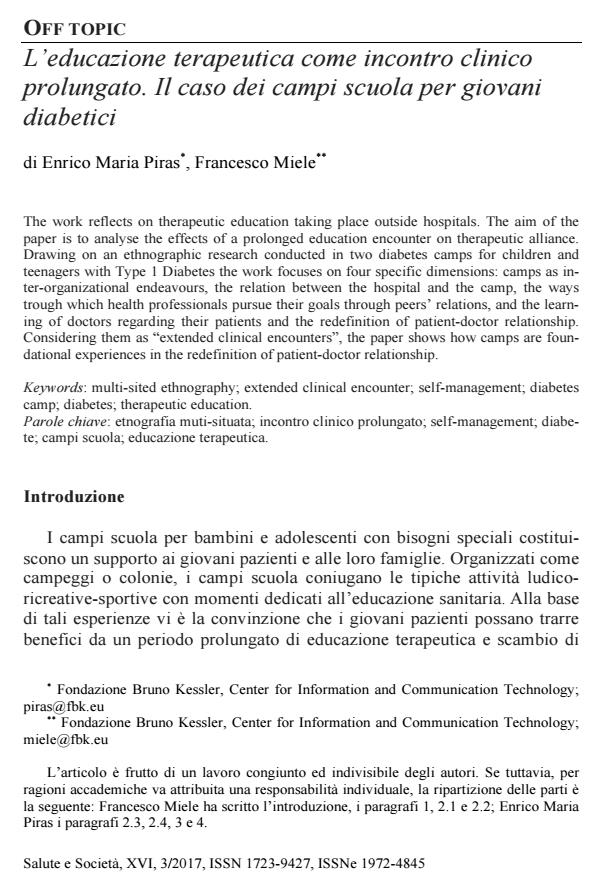L’educazione terapeutica come incontro clinico prolungato. Il caso dei campi scuola per giovani diabetici
Journal title SALUTE E SOCIETÀ
Author/s Enrico Maria Piras, Francesco Miele
Publishing Year 2017 Issue 2017/3
Language Italian Pages 18 P. 134-150 File size 100 KB
DOI 10.3280/SES2017-003011
DOI is like a bar code for intellectual property: to have more infomation
click here
Below, you can see the article first page
If you want to buy this article in PDF format, you can do it, following the instructions to buy download credits

FrancoAngeli is member of Publishers International Linking Association, Inc (PILA), a not-for-profit association which run the CrossRef service enabling links to and from online scholarly content.
The work reflects on therapeutic education taking place outside hospitals. The aim of the paper is to analyse the effects of a prolonged education encounter on therapeutic alliance. Drawing on an ethnographic research conducted in two diabetes camps for children and teenagers with Type 1 Diabetes the work focuses on four specific dimensions: camps as inter-organizational endeavours, the relation between the hospital and the camp, the ways trough which health professionals pursue their goals through peers’ relations, and the learning of doctors regarding their patients and the redefinition of patient-doctor relationship. Considering them as "extended clinical encounters", the paper shows how camps are foundational experiences in the redefinition of patient-doctor relationship.
Keywords: Multi-sited ethnography; extended clinical encounter; self-management; diabetes camp; diabetes; therapeutic education.
Enrico Maria Piras, Francesco Miele, L’educazione terapeutica come incontro clinico prolungato. Il caso dei campi scuola per giovani diabetici in "SALUTE E SOCIETÀ" 3/2017, pp 134-150, DOI: 10.3280/SES2017-003011